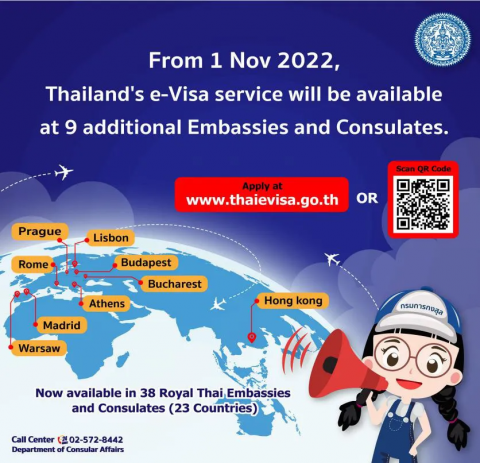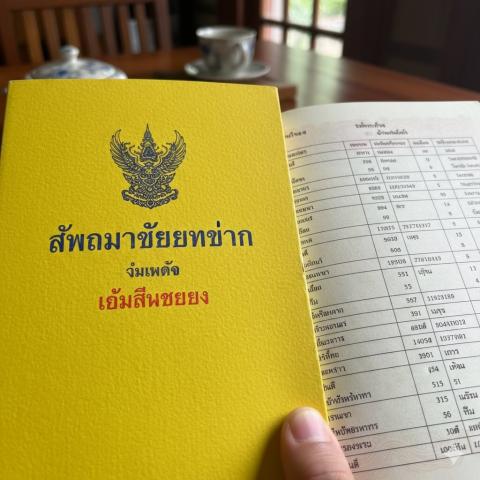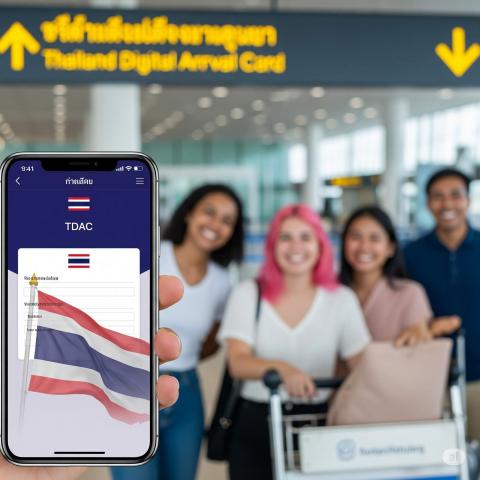Understanding and Addressing Common Thai Visa Issues for Foreigners
Navigating the complexities of Thai immigration law can be daunting for foreigners. Issues like visa overstays and complications with visa runs are common concerns. This guide provides general information on these frequent problems and outlines potential approaches, but for specific legal advice, it is always best to consult with an immigration lawyer.
Visa Overstays in Thailand: A Serious Matter
Staying in Thailand beyond the date stamped in your passport or permitted by your visa is known as an overstay. Thai immigration authorities take overstays very seriously, and penalties can be significant.
Consequences of Overstaying Your Visa
- Fines: The standard fine for overstaying is 500 THB per day, up to a maximum of 20,000 THB.
- Deportation: For longer overstays, or if caught by authorities (rather than voluntarily addressing the issue at an immigration office or airport), deportation is a real possibility.
- Blacklisting (Ban from Re-entry): Depending on the length of the overstay, you may be banned from re-entering Thailand for a period ranging from one year to permanently.
- Overstaying more than 90 days (if you report yourself): 1-year ban.
- Overstaying more than 1 year (if you report yourself): 3-year ban.
- Overstaying more than 3 years (if you report yourself): 5-year ban.
- Overstaying more than 5 years (if you report yourself): 10-year ban.
- Being arrested for any length of overstay can result in stricter bans.
- Detention: In some cases, particularly if caught during an immigration raid or unable to pay fines, you may be held in an immigration detention center (IDC) until deportation can be arranged (at your own expense).
Addressing a Visa Overstay
If you have overstayed your visa, it's crucial to address the situation promptly.
- Short Overstays (under 90 days, voluntarily departing): You can usually pay the fine at the airport immigration checkpoint when departing Thailand. This often results in no blacklisting if you haven't been arrested.
- Longer Overstays (over 90 days or if you wish to try and resolve it within Thailand): The situation is more complex. It is highly advisable to seek legal counsel from an experienced immigration lawyer. They can advise on the best course of action, which might include surrendering to immigration authorities and navigating the legal process.
- Applying for an Extension (if applicable): In some limited circumstances, if you realize you've overstayed by a very short period and your visa type allows for an extension, you might be able to pay the overstay fine at the local immigration office and apply for an extension. However, this is not guaranteed and depends on the specific visa and circumstances.
Important Note: Children under 14 are generally not fined for overstaying but will receive an overstay stamp in their passport, which could cause issues for future travel or visa applications to other countries.
The Risks and Realities of Thai Visa Runs
"Visa runs" refer to the practice of exiting Thailand briefly (e.g., to a neighboring country like Laos, Cambodia, or Malaysia) and then re-entering to obtain a new entry stamp or activate a new visa. While once a common practice, Thai immigration authorities have become much stricter regarding visa runs, especially for those attempting to live in Thailand long-term without an appropriate visa.
Potential Complications with Visa Runs:
- Increased Scrutiny: Immigration officers are trained to identify patterns of frequent visa runs. If they suspect you are attempting to live or work in Thailand without the correct long-term visa, they can deny re-entry.
- Limits on Land Border Crossings: For many nationalities, there are limits on how many times you can enter Thailand via a land border on a visa exemption per calendar year (often limited to two).
- Requirement for Onward Tickets/Proof of Funds: You may be asked to show proof of onward travel (a flight ticket out of Thailand) and sufficient funds for your stay upon re-entry.
- Policy Changes: Immigration rules can change with little notice. What was permissible on a previous trip might no longer be allowed.
- Risk of "Red Flags": Multiple back-to-back visa runs can flag your passport in the immigration system, leading to questioning or denial of entry.
Alternatives to Frequent Visa Runs:
If you plan to stay in Thailand for an extended period, relying on visa runs is risky. It is generally advisable to explore obtaining the correct type of Non-Immigrant Visa that suits your purpose (e.g., for business, education, retirement, marriage to a Thai citizen, or as a dependent). Consulting with an immigration lawyer can help you determine the most appropriate and sustainable visa option.
Other Common Thai Visa Problems
- Incorrect Visa Type: Entering Thailand on a tourist visa with the intention to work or conduct business is illegal and can lead to serious problems if discovered.
- Application Errors: Mistakes or inconsistencies in your visa application documents can lead to delays or denials.
- Failure to Report (90-Day Reporting): Foreigners on long-term visas are typically required to report their address to immigration every 90 days. Failure to do so can result in fines.
- Not Understanding Visa Validity vs. Permitted Stay: The validity of a visa (the period during which you can use it to enter Thailand) is different from the permitted length of stay you receive upon entry. Overstaying the permitted stay is what leads to penalties.
How a Law Firm Can Assist
An experienced law firm specializing in Thai immigration can provide invaluable assistance by:
- Advising on the correct visa for your situation.
- Assisting with visa applications, extensions, and changes of visa type.
- Providing legal representation in cases of overstay or other immigration violations.
- Helping navigate complex immigration procedures and requirements.
- Offering guidance on compliance with Thai immigration laws to avoid future problems.
Frequently Asked Questions (FAQ)
Q1: What is the first thing I should do if I realize I have overstayed my Thai visa?
A1: Do not panic, but act quickly. If it's a very short overstay and you are planning to leave Thailand immediately, you can usually pay the fine at the airport. For longer overstays or if you wish to explore options to stay, it is highly recommended to consult an immigration lawyer immediately to understand your options and potential consequences.
Q2: Can I just pay the overstay fine and then apply for a new visa immediately?
A2: Paying an overstay fine does not automatically make you eligible for a new visa, especially if you have accrued a significant overstay that results in a ban from re-entering Thailand. Your ability to apply for a new visa will depend on the length of your overstay and the specific circumstances. Legal advice is crucial here.
Q3: Are visa run services safe and reliable?
A3: While many companies offer visa run services, their reliability doesn't change the increasing scrutiny by Thai immigration. The risk lies with the individual traveler if immigration officials decide to deny re-entry. It's a temporary fix at best and not a sustainable solution for long-term stays. The "safety" of the trip itself is different from the "safety" of your immigration status.
Q4: My friend overstayed by a few days and had no problem leaving. Does this mean it's not serious?
A4: While some individuals may encounter minimal issues for very short overstays when departing, Thai immigration law treats all overstays as violations. Relying on anecdotal evidence is risky, as enforcement can vary and has become stricter. Penalties, including future entry bans, are a real possibility.
Q5: Can PS Law & Business help me if I'm already banned from entering Thailand?
A5: Appealing an entry ban is a complex legal process with no guarantee of success. However, a law firm can assess your specific case, advise if there are any grounds for an appeal, and guide you through the necessary procedures if an appeal is viable.
External Links
- Thai Immigration Bureau Official Website (Note: Website functionality and English content can vary. It's a primary source but may require patience to navigate.)
- Ministry of Foreign Affairs of the Kingdom of Thailand (Provides general visa information and lists Royal Thai Embassies/Consulates abroad where visas can be applied for.)




